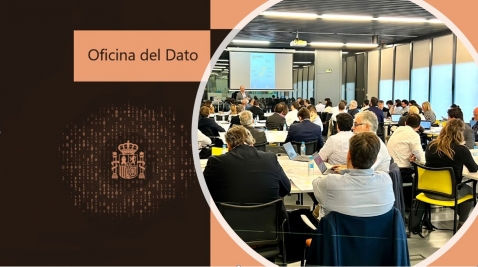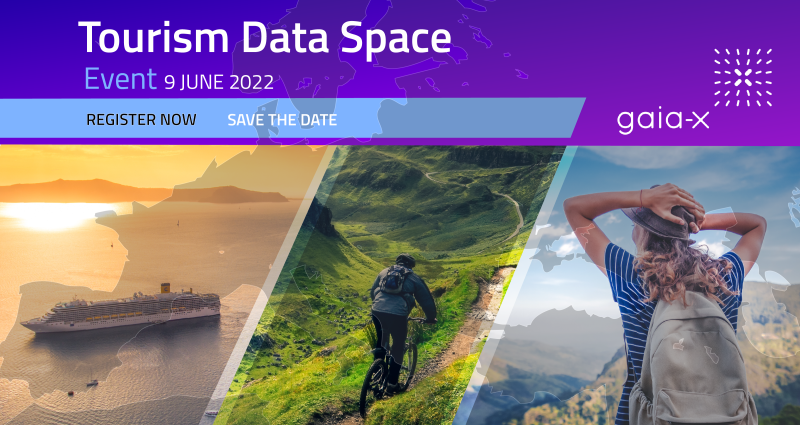The Data Office moves forward in the development of the Spanish tourism data space with a workshop on use cases
Fecha de la noticia: 31-10-2022

On 25 October, the workshop "Use cases of the Spanish Tourism data space" was held, with the aim of starting the design and deployment of the first interoperable Tourism dataspace at European level, built under the Gaia-X seal.
This activity, organised by the Data Office in collaboration with the Secretary of State for Tourism, through SEGITTUR, is part of the public-private collaboration model for the constitution of sectoral data spaces promoted by the Secretary of State for Digitalisation and Artificial Intelligence of the Ministry of Economic Affairs and Digital Transformation. The event is a continuation of the process of revitalisation of national data spaces that began with the event "Governmental impulse to a data-driven reindustrialisation - Spanish Tourism Data Space", and is part of the actions carried out by the Government of Spain to create the legal, political, technological and funding environment conducive to the deployment of the data economy, as detailed in the Digital Spain 2026 strategy. This action is aligned with the European scene.
Why a tourism data space?
Data is a vital element in the development and sustainability of the tourism sector. Enabling its proper valorisation reinforces the already significant contribution of the sector to the national economy. The place to realise this latent value is the data space.
According to their European meaning, data spaces are ecosystems where different actors share data voluntarily and securely. In this way, the sharing of data between participants is realised while respecting the principles of self-determination in data sharing (sovereignty), privacy, transparency, security and fair competition.
Tourism, given its ecosystem of public and private participants of different sizes and technological maturity, is an optimal environment in which to test the benefits of these federated data ecosystems. They facilitate the extraction of value from non-traditional data sources, with high scalability, and guaranteeing in any case robust conditions of security, privacy and therefore data sovereignty.
The high availability of tourism data brings great benefits to the sector, as it facilitates the creation of more personalised offers, products and services that provide an improved experience tailored to the needs of customers, thus improving the ability to attract tourists. It also fosters greater knowledge of the sector and informed decision-making by both public and private organisations, which can more easily identify new business opportunities.
An eminently practical workshop
During the workshop, the more than one hundred participants, from both the tourism and technology sectors, tackled the detailed characterisation of different data sharing use cases that could satisfy specific business needs in the tourism sector. The participants were organised around different working groups considering the maturity of the use cases proposed, seeking to encourage the variety of profiles and the grouping of interests. The different work dynamics were carried out in accordance with the methodology for the discovery and design of use cases developed by the Data Office, allowing the validation of their content and their scalability to the rest of the sectoral data spaces to be created.
During the final conclusions of the conference, the Data Office emphasised the central role of data spaces as a place to create new business opportunities within the tourism sector. It was also highlighted that the synergies derived from data sharing go beyond the sum of individual data, and investments, duly supported by public-private collaboration, must be seen beyond the short term and need to be backed by management. The problem to be solved is a business problem and the solution is not exclusively technological. Simple solutions must be sought that are easy to adopt and use, with robust, agile and simple deployment that do not generate barriers to entry for small participants. Taking advantage of the current technological, economic, political and social situation, it is possible to develop a tourism sector that is data-oriented, sustainable, generates social value and is inclusive.
In this link you can see the presentation of the workshop, which includes, among others, methodological aspects for the creation of data spaces, such as the characteristics or the elements to be considered.Below you can also access several infographics:
- Tourism Data Spaces and the Gaia-X Model
- Use case sheet for data sharing
- Identification and proposal of use cases in tourism
- Elements involved in the data sharing process














